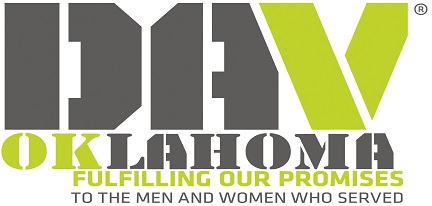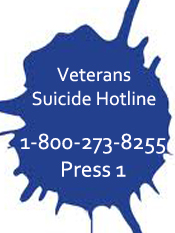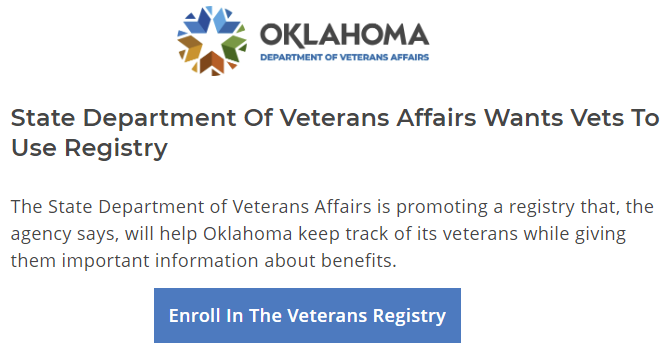On February 6, 2018 Department of Veterans Affairs Secretary David Shulkin is considering new restrictions to a program that provides monthly stipends and other assistance to family caregivers of post-9/11 veterans. Testifying before the House Committee on Veterans’ Affairs on Tuesday, Shulkin said he wanted to limit eligibility for the program to the most severely injured and ill veterans in order to expand benefits to veterans of all eras without inflating costs.
As is, the Program of Comprehensive Assistance for Family Caregivers provides monthly stipends, medical training and access to other services, such as mental health counseling, to family members of veterans injured after the 9/11 terrorist attacks. Some advocates have fought for years for an extension of caregiver benefits to veterans injured before 9/11, describing it as an unfair disparity.
Based on the Secretary’s comment, veterans before Iraq and Afghanistan will NOT qualify for caregiver programs because, as I read the Secretary’s statement, veterans prior to Iraq and Afghanistan do not caregiver’s.
On Tuesday, the House Veterans’ Affairs Committee renewed debate on the issue of VA’s caregiver program, which awards living stipends — totaling up to several thousands of dollars a month — to the families of veterans who require around-the-clock home care.
VA considers restricting eligibility for caregivers program:
• (855) 948 2311:
That is the number for the White House Hot Line and 90% of the staff are either veterans or family members of veterans. According to the VA, the agents document your concerns about VA care, benefits or services and they expeditate the referral and resolution of those concerns.
• Veteran population:
I found tthe following interesting because I believe it shows what some think of our military.
Over the next 25 years the VA expects a 37.5% decline in the veteran population. VA projections show there will be a total veteran population decline of almost 20 million by 2032.
• Half of Post-9/11 vets aren’t getting mental health care: f
About half of U.S. veterans who served during the wars in Afghanistan and Iraq don’t get the mental health care they need, according to a new report that recommends changes to improve the care delivered by the Veterans Affairs health system. Veterans who seek help for post-traumatic stress disorder, substance abuse, depression or other mental health conditions can be stymied by the VA’s bureaucracy or short-staffed clinics and hospitals. Other factors such as lack of social support, distance and fear of revealing a mental health issue may discourage veterans from seeking care at all.
VA’s Homeless Grant and Per Diem
Rep. Coffman (CO) introduced H.R. 4099, a bill which modifies the calculation of per diem payments the Department of Veterans Affairs (VA) makes to homeless grant providers to include partial payment for each of a homeless veteran’s minor dependents. This will ensure that a homeless veteran does not have to choose between treatment and keeping her or his family intact.
VA’s Homeless Grant and Per Diem (GPD) Program has long been an important source of transitional housing for homeless veterans. In 2016, these programs, generally operated by community providers who receive grant funding from VA, had 13,800 beds devoted to providing supportive housing and/or supportive services for homeless veterans. Veterans may enter these programs to stabilize their medical and behavioral health issues, learn or re-learn independent living and vocational skills and seek VA services and benefits that help them recover from life on the streets. VA notes this is a successful program that in 2016, helped 16,500 veterans move from transitional to permanent housing.
Please support this legislation to assist our homeless veterans and their families. You can use the prepared letter below to ask your Representative to co-sponsor H.R. 4099.
Thank you for your participation in the DAV Commander’s Action Network.
Click the link below to log in and send your message:
https://www.votervoice.net/BroadcastLinks/oeJHLffem6IV8FQVKbD5JA
The 115th Congress wrapped up its first session with the passage of numerous bills that benefit injured and ill veterans.
P.L. 115-26, a bill to amend the Veterans Access, Choice and Accountability Act
of 2014 to modify the termination date for the Veterans Choice Program, and for
other purposes
The Veterans Access, Choice and Accountability Act of 2014 established the Veterans
Choice Program, a temporary authority allowing certain veteran to receive necessary
medical care and services from non-VA providers. This law eliminates the three-year
sunset date of the Veterans Choice Program, allows VA to be the primary payer for care
provided through the Choice program, and share medical information with community
health care providers treating a veteran patient.
P.L. 115-31, Consolidated Appropriations Act, 2017
This appropriations bill provided funding for the following VA programs and services:
• Veterans Treatment Courts (Resolution No. 105);
• Programs to assist homeless veterans and veterans at risk of homelessness
(Resolution No. 239);
• Funding to implement the Jason Simcakoski Memorial and Promise Act (title IX
of P.L. 114–198, as amended), which DAV supports based on Resolution No.
116, calling for humane, consistent pain management programs and Resolution
No. 128, calling for comprehensive health care options, including alternative
therapies.
P.L. 115-41, Department of Veterans Affairs Accountability and Whistleblower
Protection Act
Congress and the Administration have sought ways to ensure that VA employees are
held accountable for improper actions or poor performance without violating their right to
due process protections culminating in enactment of P.L. 115-41. The act also makes it
possible to more quickly hire certain medical professionals. DAV recognizes this bill as
an important step forward for VA and the veterans it serves to improve the work
environment for the many compassionate and dedicated employees providing care to
our nation’s ill and injured veterans.
DAV Resolution 221 supports establishing meaningful accountability measures with due
process rights for VA employees.
P.L. 115-46, VA Choice and Quality Employment Act
As first introduced, DAV was strongly opposed to this emergency spending bill, which
proposed cuts in veterans benefits—specifically eliminating eligibility for older veterans’
to receive individual unemployability benefits and a COLA round down—to fund higher
than expected costs for the VA Choice program. More than 26,000 DAV supporters
contacted Congress through the Commander’s Action Network to express opposition to
these unacceptable proposed cuts in benefits. The House bill with these proposed “pay
fors” ultimately failed on the House floor.
DAV and other VSOs participated in negotiations on a new bill stripped of the
unacceptable provisions, adding language to help the recruitment and retention of VA
health professionals, and authorizing 27 pending leases for major medical facilities.
These additional provisions allowed us to support the bill based on Resolution 107,
calling for modernization of VA health care infrastructure, Resolution 112, urging timely
access to quality VA health care and medical services, and Resolution 228, supporting
effective recruitment, retention and development of the VA health care system
workforce.
P.L. 115-48, The New Forever GI Bill (formally known as, The Harry W. Colmery
Veterans Educational Assistance Act of 2017)
This law improves provisions in the existing G.I. Bill and provides more flexibility for
using educational benefits. The measure contains a number of provisions that
specifically impact disabled veterans and their families, including:
• Increases monthly Dependents Educational Assistance (DEA) payments by
about 40 percent effective October 1, 2018 (note: effective August 1, 2018, DEA
decreases from 45 to 36 months to be consistent with other VA educational
programs);
• Eliminates the 15-year limit for using the G.I. Bill, allowing for the use of the
educational benefits for life, for those who were discharged after January 1,
2013;
• Grants full G.I. Bill benefits to Purple Heart Recipients, regardless of total time in
service effective August 1, 2018;
• Provides G.I. Bill eligibility for reservists undergoing medical care for active duty
injuries effective August 1, 2018;
• Restores used G.I. bill benefits to enrolled students whose school permanently
closes after January 1, 2015, effective November 14, 2017; and
• Allows veterans who are National Guard members and Reservists and receiving
Vocational Rehabilitation and Employment (VR&E) benefits, to “pause” their
eligibility so their time under the VR&E program is not negatively affected while
called up for active duty. This provision takes effect immediately.
P.L. 115-55, Veterans Appeals Improvement and Modernization Act
This sweeping overhaul of the veterans benefits appeals process was enacted on
August 23, 2017, with DAV’s strongest support based on DAV Resolution No. 212,
calling for an improved and modernized claims and appeals process for reviewing
veterans and their family members’ claims for benefits.
DAV worked with VA, other veterans service organizations, and the Board of Veterans’
Appeals (Board) to simplify and improve the benefits appeals process, resulting in P.L.
115-55. This act created three options for a claimant to pick after his or her claim’s initial
adjudication: a higher level of review; a supplemental claim (best for claims with new
evidence); or a notice of disagreement that elects for the reconsideration to go straight
to the Board onto a docket with a hearing before the Board or a docket without a
hearing. In November 2017, the VA initiated the Rapid Appeals Modernization Program
(RAMP), a program to allow legacy appeals (oldest pending appeals) consideration
under two of the new options. DAV is working closely with the Department on RAMP
and the final implementation phase set for February 2019.
P.L. 115-62, Department of Veterans Affairs Expiring Authorities Act of 2017
On September 29, 2017 P.L. 115-62, the Department of Veterans Affairs Expiring
Authorities Act of 2017, was enacted into law. This bill extends a number of current
authorities in veterans programs covering health care, benefits, homelessness, and
other matters. The provisions discussed below are supported by resolutions approved
by DAV’s membership at our last national convention.
Based on several resolutions, DAV strongly supports this law which extends, by two
years, authority for VA to provide:
• nursing home care to veterans with service-connected disabilities (Resolution
No. 062);
• assistance and support services for caregivers (Resolution No. 009);
• continuation of a pilot program for child care for certain veterans seeking health
care services (Resolution No. 239);
• women veterans counseling in retreat settings pilot program (Resolution No.
225);
• VA reimbursement to veterans for beneficiary travel to vet centers in the same
manner as if they received services within VA health care facilities (one
additional year) (Resolution No. 240);
• a pilot program to provide neurobehavioral therapy and services to veterans with
traumatic brain injuries (extended only by three months, pending the submission
of a final report to Congress due December 2017) (Resolution No. 238);
• rehabilitation and vocational benefits to active duty service members with severe
injuries (one year) (Resolution No. 251); and
• immediate rehabilitative needs of service members while their probable medical
discharges are pending (Resolution No. 252).
The Act extends, by one year, many existing provisions to assist homeless veterans,
including:
• Veterans’ Employment and Training Service (VETS) program administered by
the Department of Labor;
• grants for child care for certain veterans participating in homeless programs;
• authority for referral and counseling services for certain “at risk” veterans; and
• supportive services for very low income families in permanent housing to
preempt homelessness (Resolution No. 239).
It extends, by two years:
• “special needs” grants to homeless provider grantees who work with populations
who require additional attention such as hospice services or intensive mental
health care; and
• authority for VA to continue to provide comprehensive community services to
homeless veterans with serious mental illness.
Finally, the law authorizes appropriations for two additional years for adaptive sports
programs for disabled veterans and service members. It also extends authority for
specially adapted housing grant programs.
P.L. 115-75, Veterans’ Compensation Cost-of-Living Adjustment Act of 2017
On November 2, 2017, President Trump signed P.L. 115-75, which provides a cost-of-living
adjustment (COLA) increase of 2 percent, effective December 1, 2017, for
veterans disability compensation and dependency and indemnity compensation (DIC)
for survivors and certain other benefits. This increase matches the COLA provided to
Social Security recipients.
This COLA benefits injured and ill veterans, their families and survivors by helping to
maintain the value of VA benefits against inflation. Without annual COLAs, many
disabled veterans, who sacrificed their own health and family life for the good of our
nation, may not be able to maintain the quality of life they deserve. DAV Resolution No.
028 calls for a realistic COLA increase.
VA Revises Regulations on Reimbursement for Emergency Treatment of Veterans
WASHINGTON — Today the U.S. Department of Veterans Affairs (VA) announced that it has, through a Federal Register notice, revised its regulations concerning payment or reimbursement for emergency treatment for non-service connected conditions at non-VA facilities.
VA will begin processing claims for reimbursement of reasonable costs that were only partially paid by the Veteran’s other health insurance (OHI). Those costs may include hospital charges, professional fees and emergency transportation, such as ambulances.
This change comes on the heels of an earlier announcement that VA was taking immediate action to address delayed payments to community providers, found here.
Effective Jan. 9, VA updated a portion of its regulations in response to an April 2016 U.S. Court of Appeals for Veterans Claims decision that stated VA could no longer deny reimbursement when OHI pays a portion of the treatment expenses.
VA will apply the updated regulations to claims pending with VA on or after April 8, 2016, and to new claims. By law, VA still may not reimburse Veterans for the costs of copayments, cost shares and deductibles required by their OHI.
VA will work directly with community providers to get additional information needed to review and process these claims. Previous claims do not have to be resubmitted unless requested by VA.
More information on the amended regulation along with guidance may be found here.
• GI Bill ► new GI bill changes:
The new Forever GI Bill signed into law by President Trump earlier this year has multiple provisions that will roll out in 2018. Among them are changes to the Post-9/11 GI Bill for Purple Heart recipients, reservists and dependents — all of which start in August.
• Post-9/11 Purple Heart recipients will be eligible to receive 100 percent of GI Bill benefits regardless of how long they served. This includes coverage of tuition at a public school’s in-state rate for 36 months, and books and housing stipends.
• There will also be scholarship funds available on a first-come, first-serve basis for GI Bill userswho need a fifth year of school to complete science, technology, engineering or math programs.
• The Veterans Affairs Department will begin calculating housing stipends based on where a student takes the most classes — a change from current policy, which uses the ZIP code of a student’s school
• If a dependent who received transferred benefits dies before using all of the benefits, the Forever GI Bill gives the service member or veteran the ability to transfer remaining benefits to another dependent. This provision will apply to all deaths since 2009.
Veterans groups advocacy helps lower new TRICARE program costs:
The fiscal year 2017 National Defense Authorization Act (NDAA) directed an extensive overhaul of the military’s health benefit program, effective Jan. 1, 2018, that principally merged TRICARE Standard and Extra into a new TRICARE Select category, and created two new beneficiary groups: Group A, individuals who served prior to Jan. 1, 2018; and Group B, individuals who began their military service after that date.
Group B co-payments were outlined in the NDAA, but DHA calculated new Group A co-pays based on past costs, instead of adopting the percent-of-services-used model employed by the former TRICARE Standard and Extra plans. This caused great concern in the military and veteran communities, because the flat-rate system increases costs for many military retirees enrolled in the plan, as well as the families of currently serving active-duty military.
TRICARE Select co-payments for Group A primary care visits have now been reduced from $27 to $21 for active-duty military families, and from $35 to $28 for retirees. Similar reductions will be seen in specialty care, urgent care, emergency room visits, and ambulance service.




